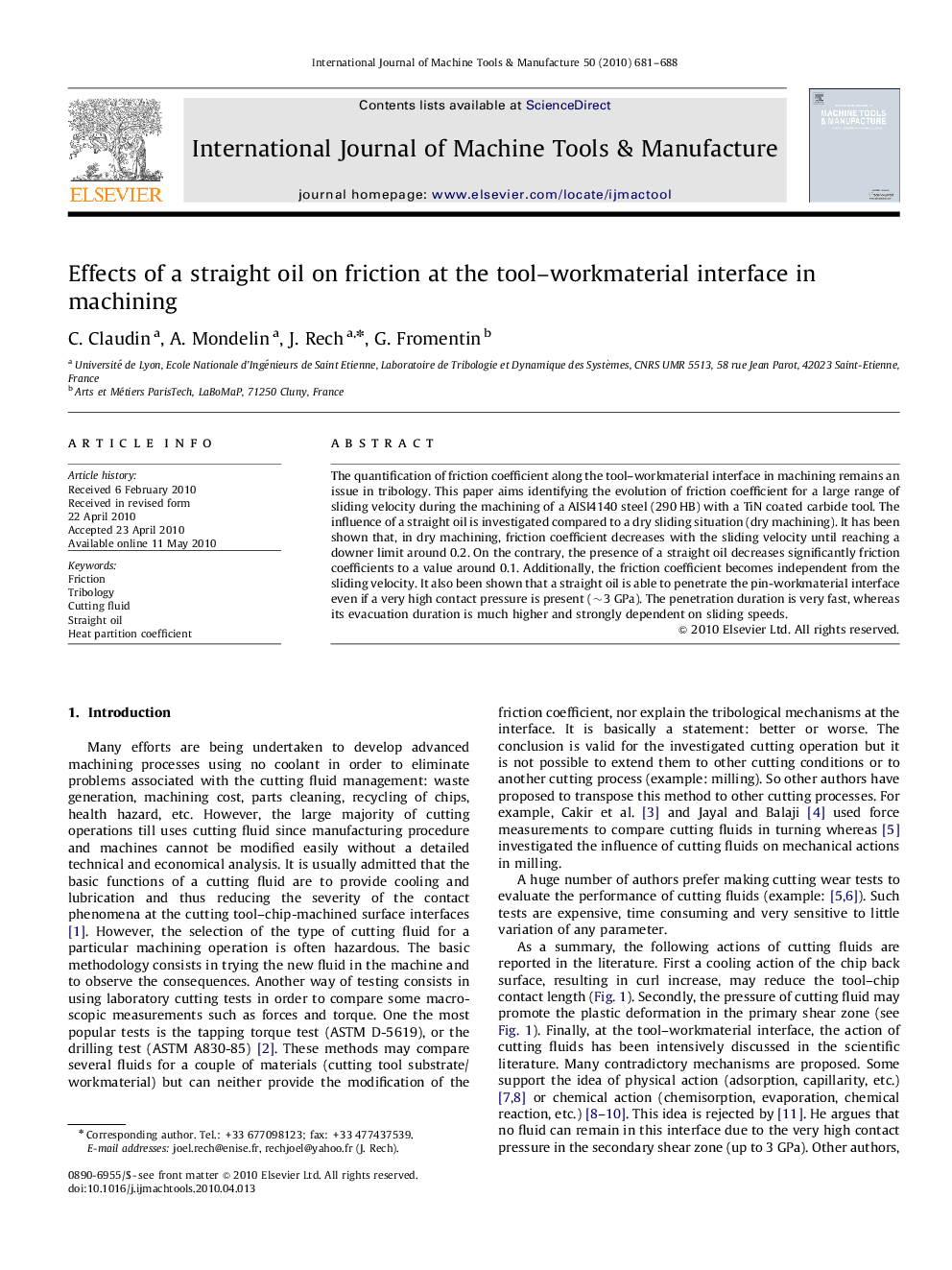| Article ID | Journal | Published Year | Pages | File Type |
|---|---|---|---|---|
| 778926 | International Journal of Machine Tools and Manufacture | 2010 | 8 Pages |
The quantification of friction coefficient along the tool–workmaterial interface in machining remains an issue in tribology. This paper aims identifying the evolution of friction coefficient for a large range of sliding velocity during the machining of a AISI4140 steel (290 HB) with a TiN coated carbide tool. The influence of a straight oil is investigated compared to a dry sliding situation (dry machining). It has been shown that, in dry machining, friction coefficient decreases with the sliding velocity until reaching a downer limit around 0.2. On the contrary, the presence of a straight oil decreases significantly friction coefficients to a value around 0.1. Additionally, the friction coefficient becomes independent from the sliding velocity. It also been shown that a straight oil is able to penetrate the pin-workmaterial interface even if a very high contact pressure is present (∼3 GPa). The penetration duration is very fast, whereas its evacuation duration is much higher and strongly dependent on sliding speeds.
